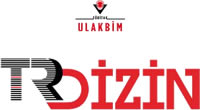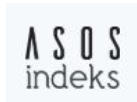Tarihi Dizilerin Öğrencilerin Yaşam Boyu Öğrenme Sürecinde Öğrenmeyi Öğrenme Ve Tarih Bilgisine Katkısı (The Contribution of Hostorical Tv Series to Learning How to Learn and Historical Knowledge During the Process of Students’ Lifelong Learning)
Anahtar Kelimeler:
Yaşam boyu öğrenme- televizyon, tarihi diziler- tarih- informal (algın) öğrenmeÖzet
Günümüz dünyasında kitle iletişim araçları gelişirken hayatımızın her noktasına da etki etmeye başladığı söylenebilir. Özellikle televizyon, algın öğrenmeyi sağlarken ilgiyle izlenen tarihi dizilerde belli bir tarih algısını izleyiciye iletmektedir. Bu araştırmanın amacı, yaşam boyu öğrenme içerisinde bulunan kitle iletişim araçlarından televizyonda yayımlanan tarihi dizilerin öğrencilerin yaşam boyu öğrenmesindeki yerini incelemektir. Araştırmada nitel araştırma desenlerinden (fenemonoloji) olgu bilim deseni kullanılmıştır. Kolay ulaşılabilir örneklem ile seçilen bir ortaokul ve bir ortaöğretim kurumundan amaca uygun tarihi dizileri izleyen 22 öğrenci, ölçüt örneklem ile seçilmiş ve araştırmacı tarafından geliştirilen yarı yapılandırılmış görüşme formu ile öğrencilerin görüşleri alınarak NVIVO 11Plus programı ile içerik analizi yapılmıştır. Araştırma sonucunda; tarihi diziler yoluyla öğrencilerin tarihi bilgi edindikleri, öğrenmeyi öğrenme süreçlerinde dizilerden etkilenerek tarihi konuları sorgulama ve araştırmaya başladıkları ortaya çıkmıştır. Özellikle tarihi bilgi edinmelerinde önemli bir rol oynadığı tespit edilen tarihi dizilerin senaryolarının tarihsel gerçekliğe uygun olarak hazırlanması önem taşımaktadır. Bunun yanında örgün eğitim kurumlarında öğrencilerin öğrenmeyi öğrenme becerisini geliştirmeye yönelik uygulamalı eğitim almaları sağlanmalıdır. Sosyal bilgiler ve tarih derslerinde bu beceriye de yer verilmelidir.
Referanslar
Altun, A. (2015). Okul dışı sosyal bilgiler öğretiminde sosyal medya. Okul dışı sosyal bilgiler öğretimi. (Editör: Ahmet Şimşek, Selahattin Kaymakçı). Ankara: Pegem Akademi Yayınları.
Büyüköztürk, Ş., Kılıç Çakmak, E., Akgün, E, Ö., Karadeniz, Ş., Demirel, F. (2014). Bilimselaraştırmayöntemleri. (17.Basım). Ankara; PegemAkademiYayıncılık.
Commission of theEuropeanCommunities (2006). Adult Learning: It Is NeverTooLatetoLearn.
Brussels. [http://europa.eu/legislation_] Erişim tarihi: 12.01.2016.
Çulha Özbaş, B. (2015). Okul dışı tarih öğretiminde tarihsel alanlar. Tarih Nasıl Öğretilir. (3.
Basım). (Editör: M. Safran). İstanbul: Yeni İnsan Yayınevi.
Diken, B. ve Laustsen, B. C. (2011). Filmlerle Sosyoloji (2. Baskı). (Çev. S. Ertekin). İstanbul: Metris Yayınları.
Erdoğan İ. ve Alemdar K. (1990). İletişim ve toplum, kitle iletişim kuramları tutucu ve değişimci yaklaşımlar. (1. Basım). Ankara: Bilgi Yayınevi.
Ertürk, S. (2013). Eğitimde Program Geliştirme (6.Baskı). Ankara: Edge Akademi.
Ferro, M. (2003). TheUseandAbuse of History: Or How thePast is TaughttoChildren.
Londonand New York: Routledge.
Görgen, İ. (2013). Program geliştirmede temel kavramlar. Eğitimde program geliştirme kavramlar yaklaşımlar (2.Baskı). Ankara: Anı Yayıncılık.
Kalçık, F. ve Kalçık, C. (2016). Tarih derslerinde aktif ve öğrenci merkezli anlayışa ilişkin öğretmen görüşleri. 4. Uluslararası Tarih Eğitimi Sempozyumu. Muğla Sıtkı Koçman Üniversitesi Yayınlanmış Bildiri Kitapçığı. 158-172.
Kocadaş, B. (2004). Kitle iletişim araçları eğitim ilişkisi. Dinbilimleri Akademik Araştırma Dergisi, IV (2), 129-135.
Merriam, B. S. (2013). Nitel araştırma desen ve uygulama için bir rehber. (3. Basım). (Çev. F. Koçak Canbaz, M. Öz., S. Turan). Ankara: Pegem Akademi Yayınları.
O’Connor, J. E. (1987). TeachingHistorywith Film andTelevision. Discussions on Teaching.
AmericanHistoricalAssociation, Washington, DC 20003.
O’Connor, J. E. (1988). History in images/images in history: Reflections on theimportance of film andtelevisionstudyfor an understanding of thepast. TheAmericanHistoricalReviewof Sociology, 93 (5), 1200-1209.
Oktay, T. (2011). Televizyon, diziler ve Türk toplumu. Türk Yurdu Dergisi, 100 (213).
Öztaş, S. (2008).Tarih öğretimi ve filmler. Kastamonu Eğitim Dergisi, 2 (16), 543-556.
Öztaş, S. (2014). Tarih derslerinde filmlerin kullanımı. Tarih Nasıl Öğretilir. (Editör. M. Safran).İstanbul: Yeni İnsan Yayınevi.
Öztaş, S., Anıl, K. N. ve Kılıç, B. (2013). Tarihî film veya tarihî dizilerin tarihe ilgiyi artırmada etkisine ilişkin MYO öğrencilerinin görüşleri. Electronic Journal of VocationalColleges- Aralık UMYOS Özel Sayı, 107-120.
Perse, E. M. (2001). Media effectsandsociety. London:LawrenceErlbaumAssociates, Publishers.[Bkz:https://books.google.com.tr/books?hl=tr&lr=&id=IjqRAgAAQBAJ &oi=fnd&pg=PP1&dq=%22media+effects+and+society%22+yazar:perse+yazar:eliz abeth&ots=p7ya3H0yDh&sig=k23hJyF1z-JIKTiBdA6J]. Erişim tarihi: 12.3.2016.
Senemoğlu, N. (2012). Gelişim öğrenme ve öğretim kuramdan uygulamaya. (21. Basım).
Ankara: Pegem Akademi Yayıncılık.
Stradling, R. (2003). Tarihi öğrenmek ve öğretmek 20.yy Avrupa tarihi nasıl öğretilmeli. (Çev.
A. Ünal).İstanbul: Türkiye Ekonomik ve Toplumsal Tarih Vakfı Yayıncılık.
Ünal, F. ve Kalçık, C. (2016). Ortaokul öğrencilerinin tarihi dizilere ilişkin algılarının metafor yoluyla belirlenmesi. IV. Uluslararası Tarih Eğitimi Sempozyumu. Muğla Sıtkı Koçman Üniversitesi Yayınlanmış Bildiri Kitapçığı. 264-275.
Ünür, E. (2013). Türk televizyon dizilerinde toplumsal kimliklerin temsili. Erciyes İletişim Dergisi, 3 (2), 32-42.
Yaylagül, L. (2013). Bilgisayar ve internetin ekonomi politiği. Global Media Journal: Turkish Edition, 4(7).
Yıldırım, A. ve Şimşek, H. (2013). Sosyal bilimlerde nitel araştırma yöntemleri. (9. Baskı) Ankara: Seçkin Yayıncılık.
Yayınlanmış
Nasıl Atıf Yapılır
Sayı
Bölüm
Lisans
Telif Hakkı (c) 2023 Anadolu Kültürel Araştırmalar Dergisi (ANKAD)

Bu çalışma Creative Commons Attribution-NonCommercial 4.0 International License ile lisanslanmıştır.













